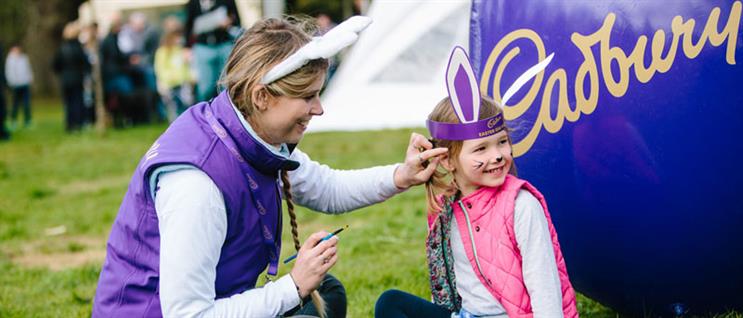The Old Treacle Factory in West London's Shepherd’s Bush houses a 140-strong agency made up of a predominantly millennial and Gen-Z workforce – plus one motorcycle enthusiast and a self-confessed chocoholic. The latter two are the Robertson brothers, Dom and Hugh; managing director and founder of RPM, respectively.
The agency began life in a cowshed on a working farm in Wokingham in January 1993, when Hugh Robertson and two friends, each of whom had fundraised £5,000, launched a company based on two principles.
"We believed in the power of experiences, so we wanted to launch an agency that helped brands deliver their purpose by the experiences they created," Robertson explains. "Secondly, we wanted to build a responsible business that was all about how we look after our stakeholders – our employees, shareholders, clients and, ultimately, our local community."
Originally named Roadshow Promotions and Marketing, the agency quickly made a name for itself as RPM, one of the UK’s leading field marketing companies. Founding client Marks & Spencer has remained on its books for 25 years as the agency's client list has grown.
From supermarket samples to global activations
Early years included the delivery of many sampling campaigns, including working alongside Mother to build the Cup a Soup brand in the UK, and a seven-week "Mexerience" supermarket tour with Pillsbury for its Old El Paso brand.
Perception-shifting work for HP Bulmer followed, as the agency created a festival activation for Strongbow at four leading surf and music events – the first cider-brand activation at a UK festival. Awards and accolades followed with numerous Agency of the Year titles, and in 2005, following a competitive pitch, Diageo appointed RPM to deliver its Smirnoff Experience music events across 25 markets on six continents – worth a reported £1.6m. Diageo remains a client.
That year was also notable for the co-founders' split, which Robertson describes as "absolutely the right call for the business, but one that involved a huge amount of soul-searching and head overruling the heart because, despite best intentions to resolve amicably, sadly it did not end as such. In not facing up to what was required quick enough, the business effectively stood still for 18 months."
By 2008, however, work with Cadbury followed, fulfilling a chocoholic's dream, which included a Halloween campaign and the Trident gum launch, but it was the agency’s talent for driving footfall to mass-participation branded events that established it as one of the experiential giants of the UK. Sky's mass-participation cycling event, Skyride, was among the ambitious client projects that landed RPM the coveted title of Experiential Agency of the Year, for getting an impressive one million people on their bikes.
RPM Ventures was born in 2012, investing and supporting start-ups including the Wild Beer Co and Le Col. The agency had a financial reset post-London 2012, when, along with many in the brand-experience industry, a quieter year followed the buoyancy of the Olympics. In 2013, RPM was appointed by Heineken to develop an activation around the launch of its UV-reactive bottle, delivering a visceral "Design nights" experience.
Further work with Cadbury came when the agency collaborated on the "Cadvent" integrated activity in December 2015, the confectioner’s biggest seasonal ad campaign to date. The cautious financial planning of earlier years paid off as RPM entered 2017 reporting an increase in profit and ended the year with a slew of awards for its work with a certain Captain Morgan.
Independent strengths
Robertson attributes the longevity of the agency to having "a strong culture based on transparency, honesty, collaboration and entrepreneurial flair", and remains fiercely proud of the fact that the agency has maintained its independence across the years. He adds: "It’s also about working with family, a love of chocolate, remaining interested and innovative, and being motivated to do well. And that honesty and relationships with our clients is how we’ve worked with clients for a very long time."
The agency has also strengthened its knowledge in some of its formative interests, including festival culture, and fostered a deep understanding of shopper and the rise of the experience store.
Diversification may be necessary in the future, particularly given RPM's high volume of European work for global clients, which could face pressures post-Brexit. Recent accounts highlight a drop in turnover of £4m, largely offset by a 10% increase in the gross margin, partly as a result of the agency's surge in high-yielding shopper work.
Indeed, marrying the agency’s experiential heritage during the age of experiences with a focus on innovation work and growth areas will remain core to the success of the agency in the future, Dom Robertson says. "The challenge is to stay relevant for clients in [this] rapidly evolving industry and ever-changing landscape of clients' needs."



